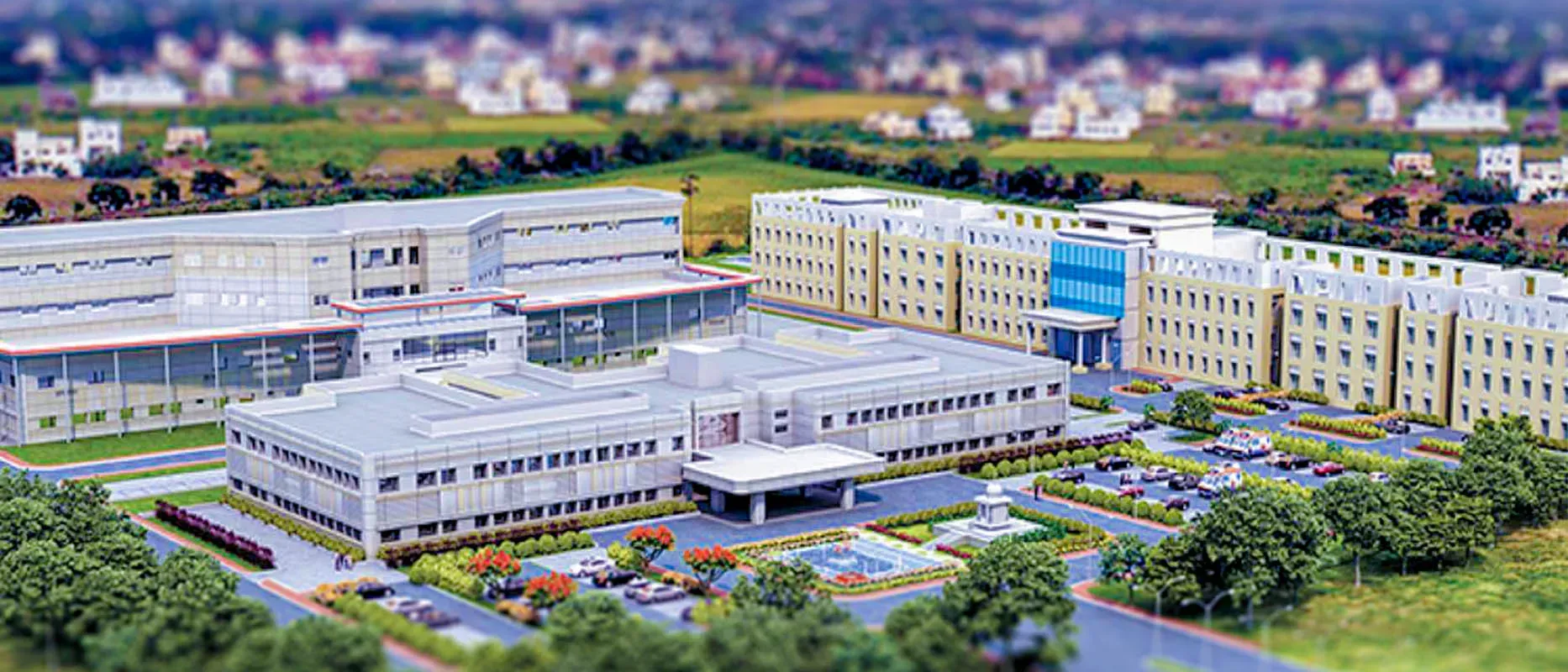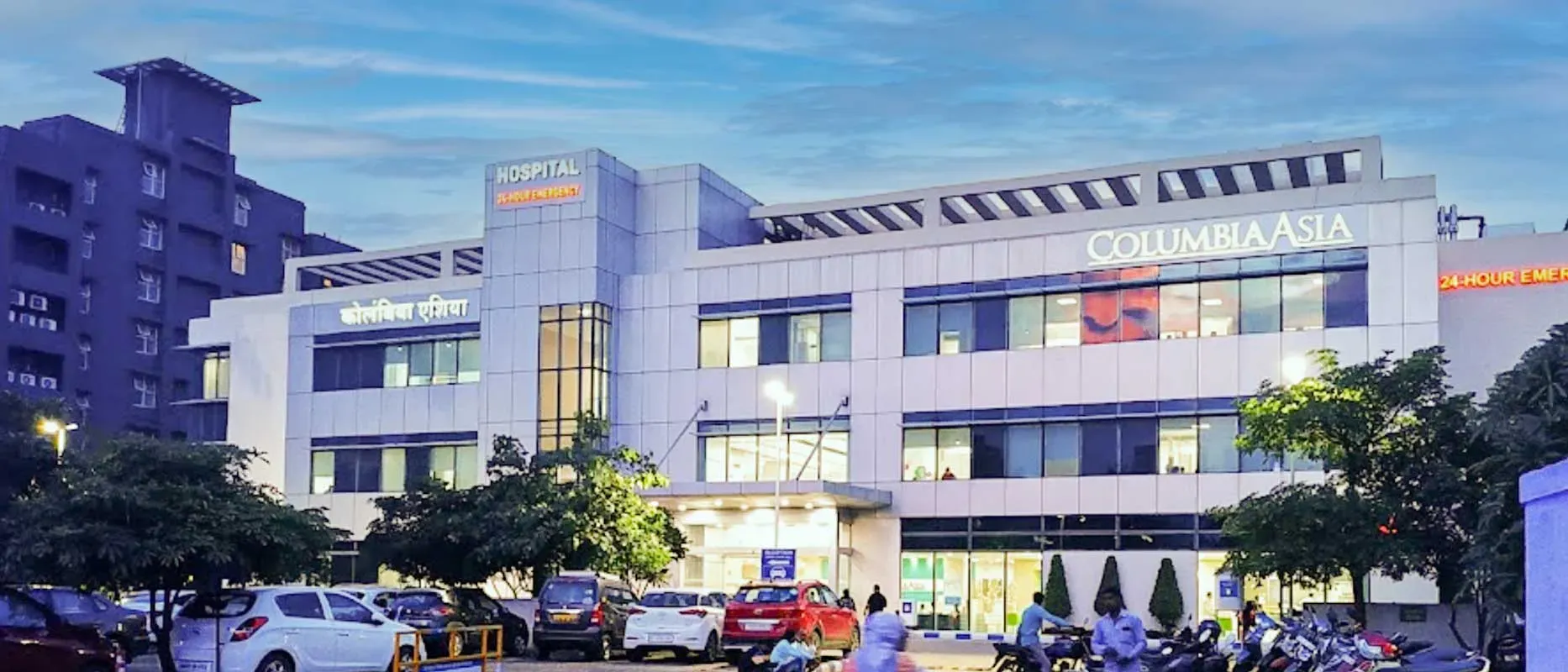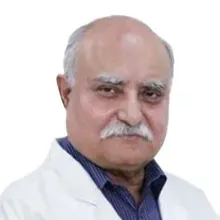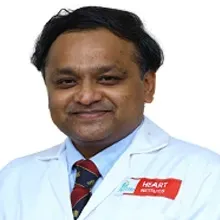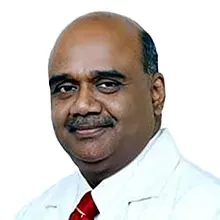Overview of Mitral Valve Replacement India
Mitral valve replacement is a surgical procedure in which the damaged mitral valve is replaced with an artificial valve. Mitral valve is present in the left side of the heart. It helps to prevent the backflow of the blood in the heart and it also prevents the extra pressure on the heart. When the mitral valve is damaged either it does not open properly or it does not close properly which puts the extra pressure on the heart and causes symptoms. Mitral valve replacement can either be performed with large incision which is the traditional type of surgery. Or it can be performed as minimally invasive mitral valve replacement surgery, where the small incisions are made to perform the procedure. Two types of valves can be used in mitral valve replacement. It can be a tissue from an animal or human which is known as a biological valve or it can be a mechanical valve that is formed in the laboratory. Like any other surgery, mitral valve replacement procedure also has some risks associated with it which should be managed to avoid any complications during the procedure or even in the recovery period. After Mitral valve replacement, the immediate symptom relief is felt by most of the patients. Within 2-3 weeks, the patient usually recovered and got back to the normal activities of daily living.
Types of Mitral Valve Replacement India
There are three main types of mitral valve replacement surgery. These are:
- Mechanical Mitral Valve Replacement
- Bioprosthetic Mitral Valve Replacement
- Transcatheter Mitral Valve Replacement (TMVR)
Mechanical Mitral Valve Replacement
Mechanical valves are made of the material which can function as the natural valve. The material used in this is carbon or metal. The mechanical valves can survive for a longer time period but it has a risk of developing infection.
Bioprosthetic Mitral Valve Replacement
Bioprosthetic valves are made up of the animal tissues and are more acceptable than mechanical valves. The animal tissue used in this can be derived from cow or pig. The biological valve has less chances of developing infections but it may need to replace after some time.
Transcatheter Mitral Valve Replacement (TMVR)
In this type of mitral valve replacement, the catheter is inserted through the vein and then guided to the heart where the replacement valve is placed with the damaged valve to take its place. This is mostly used when the patient is too weak to go under traditional open heart surgery of larger incisions.
Procedure of Mitral Valve Replacement
Here is a general overview of the Mitral Valve Replacement procedure:
Anesthesia: The anesthesia is given to the patient so that the patient feels no pain or irritation during the procedure of mitral valve replacement.
Incision: An incision is made according to the type of procedure. It can be a large incision as in traditional open heart surgery or the small incision as in the minimally invasive mitral valve replacement.
Cardiopulmonary Bypass: To maintain the circulation of blood in the body and oxygen supply to the cells during the procedure, a heart-lung machine is used. This machine temporarily performs the functions of the heart and lungs.
Placing the Patient on Cardiopulmonary Bypass: The surgeon inserts tubes into the heart chambers to drain blood, which is then directed to the heart-lung machine. The machine oxygenates the blood and removes carbon dioxide.
Stopping the heart: The heart is temporarily stopped by using a specific solution, which is a cold potassium-rich solution. This allows the surgeon to work on a motionless heart.
Removing the Damaged Mitral Valve: The surgeon carefully removes the damaged or diseased mitral valve. The valve is detached and debris is cleared from the surrounding tissues.
Preparing the Mitral Valve Replacement: Depending on the type of replacement valve chosen, the new valve is prepared.
Placing the Replacement Valve: The new valve is carefully positioned within the opening of the mitral valve and securely stitched in place.
Testing and Ensuring Functionality: After the valve is implanted, the surgeon checks for any leaks by filling the heart chambers with saline solution and observing the valve's function. They assess the valve's ability to open and close properly.
Closing the Incision: Once the valve replacement is successful, the surgeon closes the incisions in the chest. The chest incision is closed with sutures. The incision is then covered with dressings of medications to prevent any infection.
Diagnosis of Mitral Valve Replacement India
Recovery of Mitral Valve Replacement
During Hospital Stay
Recovery after mitral valve replacement surgery typically involves a hospital stay of about 5 to 10 days. During this time, patients are closely monitored for vital signs, heart function, and healing of incision. Medications are prescribed to manage pain, prevent infection, and support healing. Gradual physical activity is encouraged, starting with sitting up, walking short distances, and gradually increasing activity levels. Wound care is important to prevent infection.
After Discharge
A balanced and healthy diet is important for recovery. Patients may receive dietary guidelines from a nutritionist or healthcare provider. Recovering from heart surgery can be emotionally challenging. It's important to have a support system in place and to communicate any concerns or anxieties with healthcare professionals. After discharge, patients have to follow-up appointments with their surgeon and healthcare provider.
Cost of Mitral Valve Replacement in India
The cost of Mitral Valve replacement in India ranges from 3000 USD-5000 USD. However, it can vary according to hospital, skill of surgeons, complications of a specific patient and the health of a patient at the time of surgery.
Different procedures of mitral valve replacement in India:
| Treatment Costs in India |
Min in USD |
Max in USD |
| Mitral Valve Replacement |
3303 USD |
4404 USD |
| Mitral Valve Replacement - Mechanical Valve |
4635 USD |
6180 USD |
| Mitral Valve Replacement - Tissue Valve |
3463 USD |
4617 USD |
| Mitral Valve Repair |
1065 USD |
1420 USD |
Symptoms and Risk factors
Indications for mitral valve replacement surgery include:
- Severe mitral valve narrowing.
- Severe mitral valve leaking.
- Mitral valve disease causing heart failure.
- Mitral valve disease causes significant enlargement of the heart chambers.
- Mitral valve disease causing infections.
- Mitral valve disease with associated symptoms such as chest pain, shortness of breath, and fatigue.
- Failure of previous mitral valve repair procedure.
- Congenital heart defects involving the mitral valve.
Risk factors of Mitral Valve Replacement
Infection
There is a risk of developing an infection at the site of surgery. There is a need to take some precautions that can minimize this risk, such as sterile techniques during surgery and medications for infection.
Bleeding
There is a risk of bleeding during and after the procedure. In some cases, bleeding may occur extensively and the transfusion is required.
Poor Overall Health
Frailty or weakened immune system can increase the risk of surgical complications.
Obesity
Excess body weight can increase the risk of complications during surgery and also delay recovery time.
Valve Dysfunction
In some cases, the replaced valve may not function properly, leading to leakage or restricted blood flow.
Long-Term Complications
Mechanical valves require lifelong use of anticoagulant medication, which carries a risk of bleeding. Bioprosthetic valves may eventually wear out and require additional surgery.
Top Hospitals for Mitral Valve Replacement in India
Shaping the future of the healthcare institution and establishing the path to accomplishment.
Top Doctors for Mitral Valve Replacement in India
Empower your Health with the Expertise of Leading Medical Professionals.
Dr. Ajay Kaul
Department of Cardio Thoracic and Vascular Surgery
Senior Consultant
Book Appointment
Dr. Thangaraj Paul Ramesh
Department of Cardio Thoracic and Vascular Surgery & Cardio Thoracic Vascular Sciences
Consultant
Book Appointment
Dr. Sunder Thirugnana Sambandan
Department of Cardio Thoracic and Vascular Surgery
Consultant
Book Appointment
Dr. L.F. Sridhar
Department of Cardio Thoracic and Vascular Surgery
Consultant
Book Appointment
Treatment Costs for Mitral Valve Replacement
Be the change and be an opportunist in transforming healthcare.
How it's Works
Guiding your Journey from Discovery to Treatment Planning and Beyond.
Discovery
Get a consultation to discover about your treatment
Pre-Treatment
Admission to the best hospital and all pre-treatment facilities
Post Treatment
Get post-treatment follow-up care with medicine fulfillment
Treatment Planning
Hassle-free treatment planning with package & cost estimations
in-treatment
world-class quality procedures and equipment for treatment












